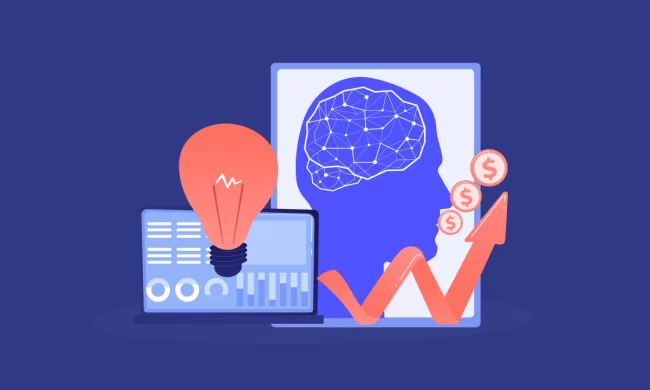The financial sector is under pressure as consumers shift spending to tap into new technological frontiers. Financial institutions are turning to artificial intelligence (AI) to remain competitive. But what is the role of AI in the financial sector?
Artificial intelligence can be used in several ways within the financial sector. For example, AI can mine data to identify trends, develop predictive pricing or risk assessment models, or automate customer service tasks.
In retail banking, AI is used to develop “chatbots” that can provide customer support and fulfill basic banking tasks such as balance inquiries or transferring money between accounts. These chatbots are powered by natural language processing (NLP) algorithms that can understand human speech.
In investment banking, AI creates algorithms that can automatically trade stocks and other assets. These algorithms can buy or sell assets milliseconds faster than any human.
AI is also being used to develop new products and services, such as Robo-advisors. Robo-advisors are computer programs that provide automated financial advice. They use algorithms to analyze a customer’s financial situation and recommend investments, savings, and spending.
The use of AI in the financial sector is not without its challenges. One of the biggest challenges is data privacy. Financial institutions have access to large amounts of sensitive customer data. This data must be protected from unauthorized access, or it could be used to commit fraud or theft.
Another challenge is the “black box” problem. AI algorithms are often opaque, meaning it is difficult to explain how they arrive at their decisions. This lack of transparency can be a problem when AI makes important financial decisions, such as approving loans or investment recommendations.
Despite these challenges, AI is expected to play an increasingly important role in the financial sector in the years to come. As AI technology continues to evolve, so will the ways financial institutions use it.
Why Are Fintech Companies Opting for AI?
Fintech companies are those financial services startups that use innovative technology to provide a better experience for their customers. They’re often more nimble than the large, traditional financial institutions and can move faster to adopt new technologies.
One of the most popular fintech applications of artificial intelligence is the development of chatbots. Chatbots are computer programs that can understand human speech and respond accordingly. They’re powered by natural language processing (NLP) algorithms.
Chatbots can be used for customer support or to fulfill basic banking tasks, such as balance inquiries or transferring money between accounts. In customer support, chatbots can understand a customer’s problem and provide a resolution without involving a human agent.
Fintech companies like Robo-advisors also use AI to develop new products and services. Robo-advisors are computer programs that provide automated financial advice. They use algorithms to analyze a customer’s financial situation and recommend investments, savings, and spending.
Robo-advisors can provide investment portfolio recommendations, retirement savings, or debt management. They can also offer advice on how to spend money wisely or budget for upcoming expenses.
Conclusion:
AI is changing the face of financial services. It’s being used to develop new products and services, such as chatbots and robo-advisors. AI is also being used to automate customer service tasks and to mine data for trends.
While AI has challenges, such as data privacy and the “black box” problem, it is expected to play an increasingly important role in the financial sector in the years to come. Fintech companies are at the forefront of this AI revolution, using it to provide better customer experiences.
You can also contact the artificial intelligence app development company, which can help you build AI-based applications.




